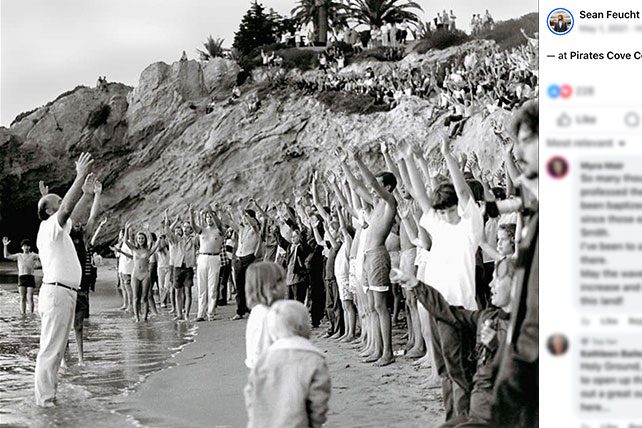The Jesus Movement, a significant spiritual revival, emerged amidst the tumultuous counterculture of the late 1960s and early 1970s in the United States. This movement marked an unprecedented fusion of religious tradition with the era’s radical social changes, appealing strongly to the youth of the time. Its followers sought to live out the teachings of Jesus Christ authentically and radically, often drawing attention for their unconventional approaches to worship and community life. This blog post delves into the essence of the Jesus Movement, exploring its origins, impacts, controversies, and its portrayal in contemporary media, notably through the “Jesus Revolution” movie.
Historical Background of the Jesus Movement 1970s
Originating in the late 1960s, the Jesus Movement sprang from a period of intense social and cultural upheaval. Young individuals, disillusioned with the societal norms and the established religious institutions of the time, sought a more authentic and direct experience of spirituality.
The movement rapidly spread across the United States, with significant concentrations in California. Its followers, known as “Jesus People” or “Street Christians,” were distinguished by their simple, communal living and their fervent evangelism, using contemporary music and media to share their message.
RELATED: ‘Jesus Revolution’ Is Coming to Netflix; ‘Let’s All Be Praying,’ Says Pastor Greg Laurie
Political Orientation: Conservative or Liberal?
The Jesus Movement’s political orientation is complex, reflecting elements of both conservative and liberal ideologies. Its core religious tenets often aligned with conservative values, emphasizing personal salvation and traditional moral principles. However, its social practices, including communal living and a strong emphasis on social justice, mirrored the era’s liberal countercultural movements.
This blend of beliefs made the Jesus Movement a unique phenomenon that challenged conventional political and religious categorizations.
Impact of the Jesus Movement
The Jesus Movement significantly influenced American Christianity, introducing contemporary worship music and informal worship styles into mainstream church practices. It played a critical role in the development of Christian rock music and the rise of megachurches and nondenominational congregations.
RELATED: What is Calvary Chapel & Why Should You Care?
Additionally, the movement revitalized evangelical Christianity, contributing to the growth of charismatic and Pentecostal denominations. Its emphasis on a personal, experiential faith continues to shape Christian communities worldwide.
Controversy Surrounding Calvary Chapel
Calvary Chapel, founded by Chuck Smith in Costa Mesa, California, became a central hub for the Jesus Movement. The church’s embrace of contemporary music and casual worship services attracted many young people.
However, its rapid growth and distinctive practices also sparked controversies, particularly regarding church governance and theological interpretations. These disputes highlighted the tension between the movement’s innovative approaches and traditional evangelical doctrines.
The Historical Jesus Movement vs. Jesus Revolution
While the “Jesus Revolution” movie seeks to capture the spirit and challenges of the Jesus Movement, it is important to distinguish between cinematic portrayal and historical reality. The film necessarily condenses and dramatizes events, focusing on specific narratives that may not fully encompass the movement’s diversity and complexity.
RELATED: Greg Laurie: Pray for a Millennial Jesus Movement
“Jesus Revolution” Movie Review
For Christians, “Jesus Revolution” offers a nostalgic and inspiring depiction of a pivotal moment in modern Christian history. The movie successfully conveys the fervor and sincerity of the movement’s participants but should be viewed with an understanding of its dramatized elements. It serves as a valuable conversation starter about faith, revival, and the complexities of church history.

